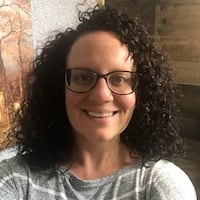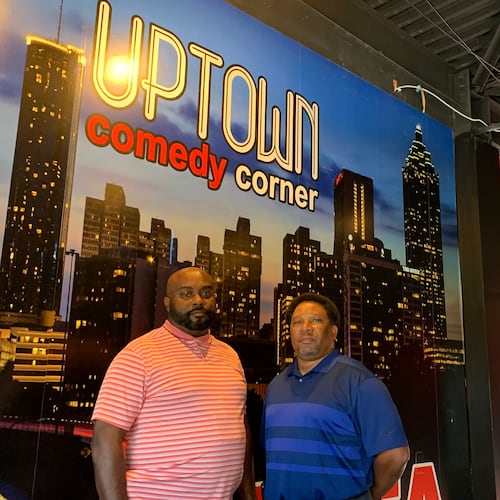BY YVONNE ZUSEL
David Lovering has played drums for the Pixies since the band formed in Boston in 1986, and drummed for several other bands when the Pixies took a decade-plus hiatus before coming back together in 2004. Even after all that time playing many of the same songs, he recently found a way to change things up.
Credit: Yvonne Zusel
Credit: Yvonne Zusel
Lovering, who trained as a jazz drummer when he was younger and used a traditional grip to hold his sticks, switched to the classic rock matched grip when he joined the Pixies, along with lead singer Black Francis, guitarist Joey Santiago and bassist Kim Deal, who later left the band. About a year and a half ago, he decided to return to his original grip.
"It took a little time to get it back, but the funny thing is that I have never gotten so many compliments on my drumming in my life," Lovering said. "I'm glad I did it, because it’s so much easier to play that way. It’s something that I had completely forgotten about."
Check out Lovering's old-but-new grip -- and the rest of the Boston-based band's indie punk rock -- -- Friday night during their 8:15 p.m. set at Shaky Knees Festival . Lovering discussed the staying power of the band's music and his interesting side hobby in advance of the show.
Q: You've played a lot of big festivals and also headlined your own shows since the group got back together. Which do you prefer?
A: We keep switching back and forth all the time. Usually when we do our own shows, it's nice because we're in control. Festivals are a whole different change of pace. There's really no preference, it's just nice to switch it up once in awhile.
Q: Can you talk about the process of recording 2014's "Indy Cindy," the group's first album of original material in more than two decades?
A: In 2011 we realized it had been seven years we had been touring with the reunion, which is longer than we were initially a band, and that was quite shocking to us. It put our asses in gear to do something new. We got everyone on board and we were able to get everyone together. There was some trepidation. We all agreed that as long as we liked the songs, we would be happy doing it. So we had a bunch of songs and went into the studio, and it was like nothing had changed. At the end, we were very happy with what we had.
Q: Are there any plans to record more new music?
A: We went to Los Angeles maybe two months ago and we wrote about 12 new songs, and we'll play 2 or 3 during each show. The whole idea is we're going to see how that goes.
Q: There was a lot of fanfare last year around the 25th anniversary of the groups' 1989 album "Doolittle." Did you think when you were recording it that there'd be so much love for it so many years later?
A: When we were doing that album, we were very happy with it. But it really didn't do anything as far as acclaim or popularity, so it's funny that 20 years later it's considered a classic. One funny thing is when the album first came out, Rolling Stone gave it two or three stars. Then around the 25th anniversary, they revisited it and gave it five stars.
Q: Bassist Kim Deal left the group in 2013, and you've played with a few different bassists since. What's the process like of getting used to someone new in that role after so many years?
A: At first it was very odd, because all I’ve done with The Pixies for all these years, there was Kim to my left. I was used to her physically being there. And then when she wasn’t there, there was an uneasiness. Now, I’m playing with Paz Lenchantin, who’s a consummate bass player. Because of that, I have to play better myself. I have to step up my game because I don’t want to be embarrassed around her. I’ve been really working on it, and luckily, I’ve improved things. She’s a joy to be around, the audience loves her.
Q: Do you still talk to Kim?
A: No, since we wished her well last time we were in the studio, that was the last time we spoke. What can we say about Kim, except to wish her well. She is always welcome to come back, we've always put that out there.
Q: How do you keep songs fresh that you've been playing for so long?
A: I've never had a problem with any of the songs, even though I've played them a million times. I can't say everyone feels the same as me, but I've never had a problem. I know them so well, it's like muscle memory.
Q: There have been so many changes in the way music is made and distributed since the Pixies started. Do you think it's easier for bands now?
A: My whole theory is that I think that we had good songs, and I think that if you have good songs, you'll get noticed. I think that''s what happened to us. But with YouTube and being able to put up your own website, you can promote your own stuff. so there's many more vehicles you can use to get noticed. But you still have to have the material there to make it work. If it's bad, I don't think YouTube or anything else is going to help you. There are a lot more tools to take advantage of, but you've gotta be good.
Q: When the Pixies went on hiatus, you became a magician.
A: My friend Grant-Lee Phillips (of the group Grant Lee Buffalo) asked me to go to a magic conference in 1994. If you told me I would have been a magician before I became a magician, I would have rolled around on the floor laughing. You've heard the term "starving musician"? Well, there's also the term "dying magician," because it's not a wise career choice. So I was doing all the birthday parties and shows around, but it wasn't doing anything as far as money, so I had to come up with something, so I can up with the Scientific Phenomalist, which pulled from my background in electrical engineering. I was doing experiments that were pretty cool and wild and as the show goes on, I'm incorporating magic. So I did that for awhile and played with some other bands. And now that the Pixies are back together, that's much more lucrative, so the magic is on hiatus.
About the Author
Keep Reading
The Latest
Featured




